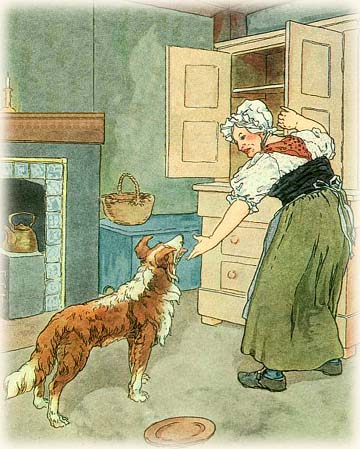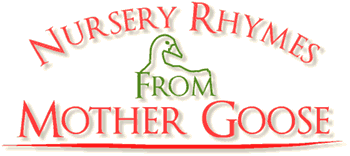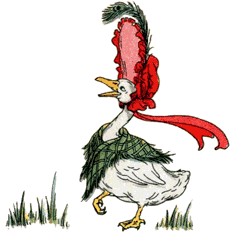Old Mother Hubbard
Old Mother Hubbard
Went to the cupboard
To get her poor doggie a bone,
When she got there
The cupboard was bare
So the poor little doggie had none.

Politics in the 16th Century
The meaning of the nursery rhyme Old Mother Hubbard goes back to the first half of the sixteenth Century. It was the time when King Henry VIII ruled England, and Cardinal Thomas Wolsey, who served as Lord Chancellor, was the most important and influential statesman of his kingdom.
The king had a problem: after sixteen years of marriage to Catherine of Aragon, he still had no heir to the throne. Before they had gotten married, a special papal bull was required, because Catherine was a widow of his brother (Prince Arthur) who had died at a young age just a couple of months after them getting married. Against such marriage was a passage of Scripture in the Book of Leviticus: “And if a man shall take his brother’s wife, it is impurity: he hath uncovered his brother’s nakedness; they shall be childless.”—the reason why special permission from the Pope was required. And now he wanted a divorce so as to marry his mistress Anne Boleyn. The task to get permission from the Pope was, of course, assigned to Cardinal Wolsey. He failed, lost his power, was arrested, and died in prison.
The Cardinal as Mother Hubbard
This is what the first verse—that is much older than the others of the longer version speaks about: the Old Mother Hubbard is the Cardinal, the doggie is King Henry VIII, the bone is the divorce he wished to have and the cupboard refers to the Catholic Church.
The longer version of Old Mother Hubbard:
| Old Mother Hubbard Went to the cupboard, To give the poor dog a bone: When she came there, The cupboard was bare, And so the poor pecker had none. She went to the baker’s She went to the undertaker’s She took a clean dish She went to the alehouse She went to the tavern |
She went to the fruiterer’s To buy him some fruit; When she came back He was playing the flute. She went to the tailor’s She went to the hatter’s She went to the barber’s She went to the cobbler’s She went to the sempstress |
She went to the hosier’s To buy him some hose; When she came back He was dressed in his clothes. The Dame made a curtsy, This wonderful dog |
1. A simple retelling
Old Mother Hubbard goes to get a bone for her dog, but the cupboard is empty and the dog gets nothing.
2. The characters
- Main character: Old Mother Hubbard
- Other characters: Her dog
3. Setting
A home (near a cupboard)
4. Theme
Scarcity and simple everyday life.
5. Moral
No clear lesson.

